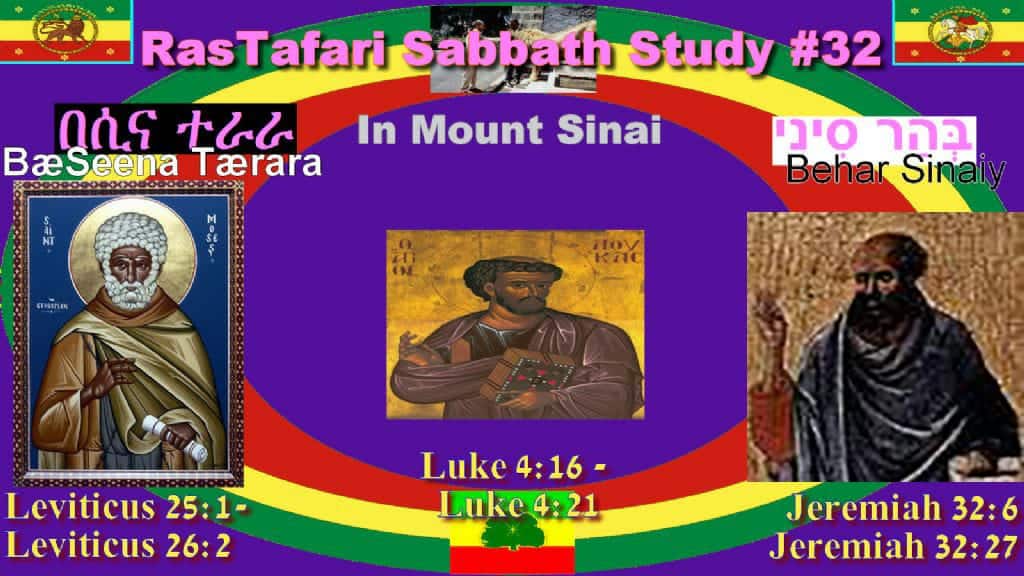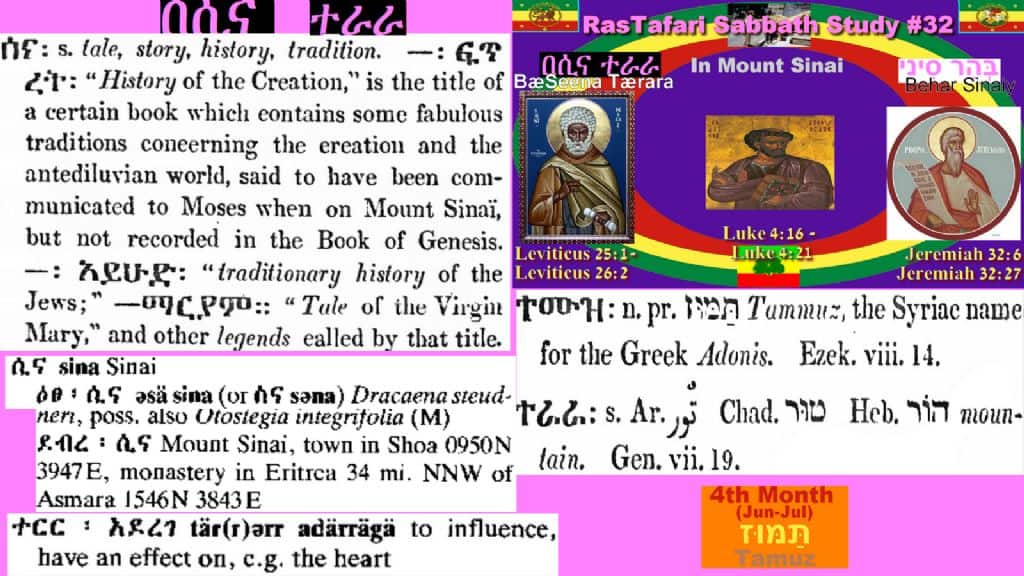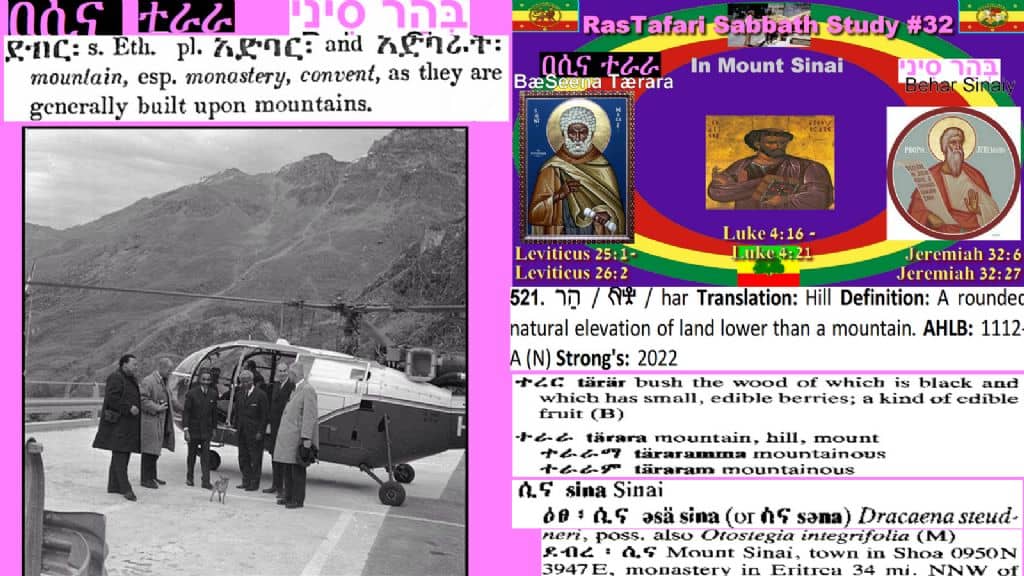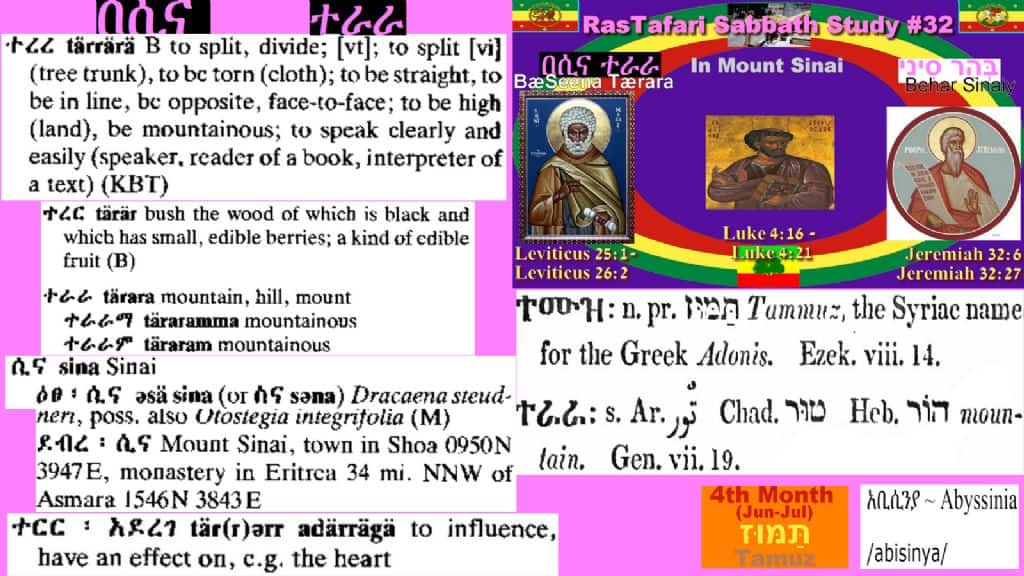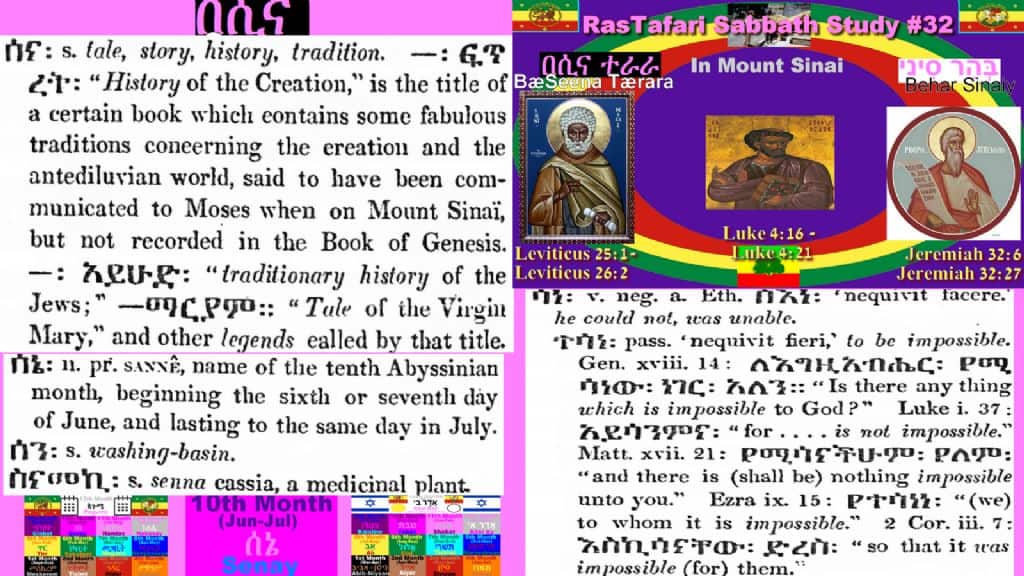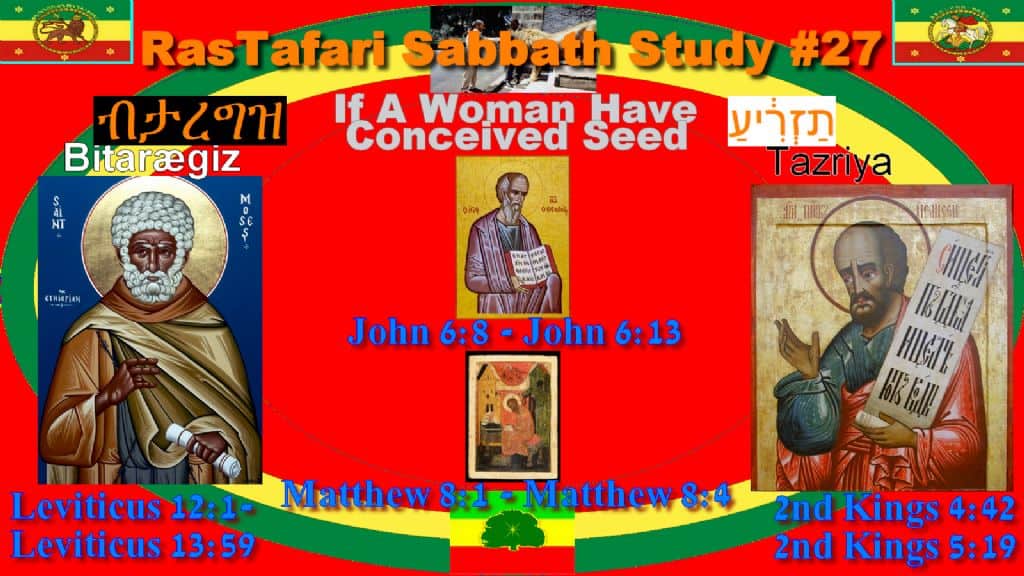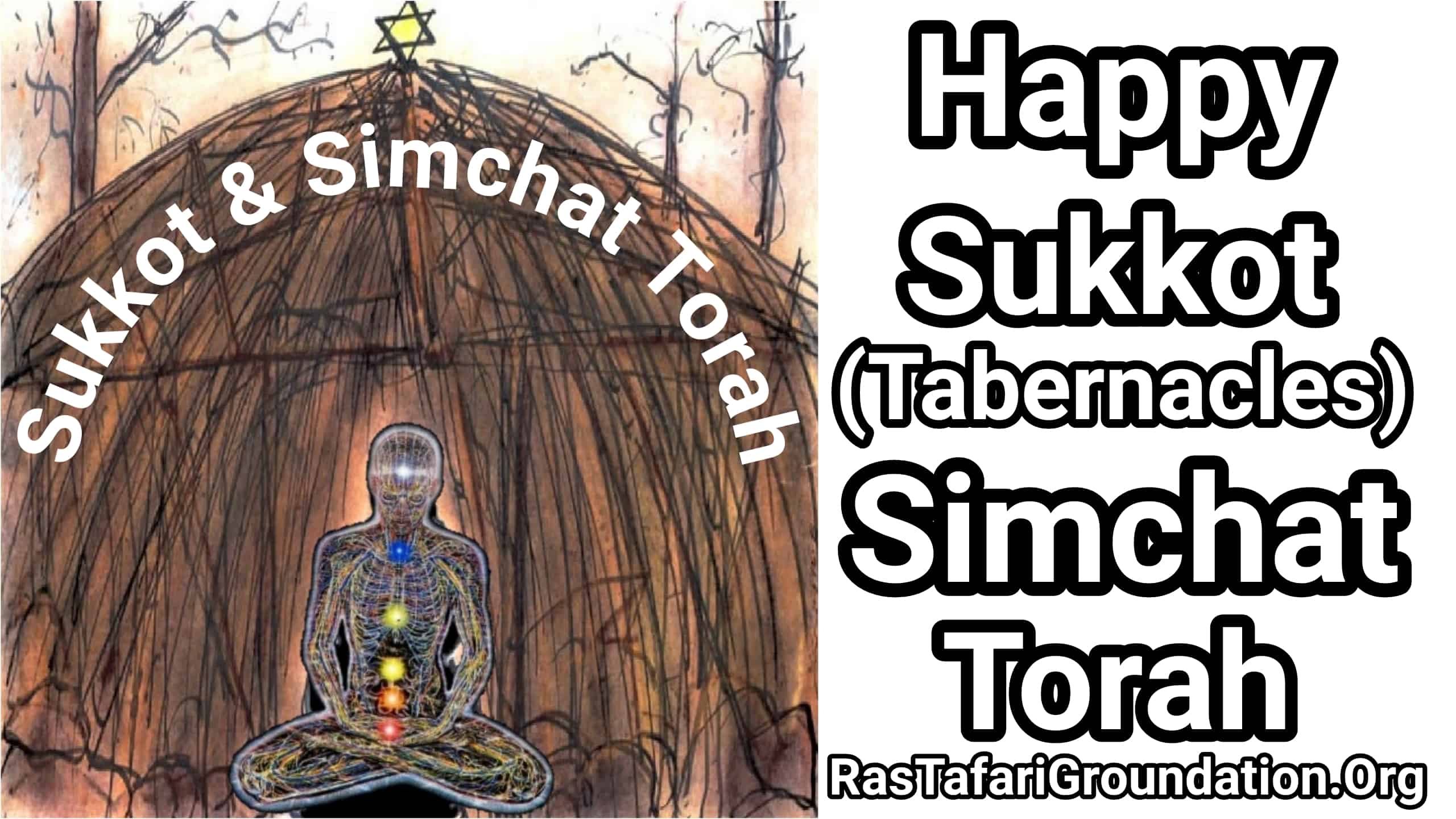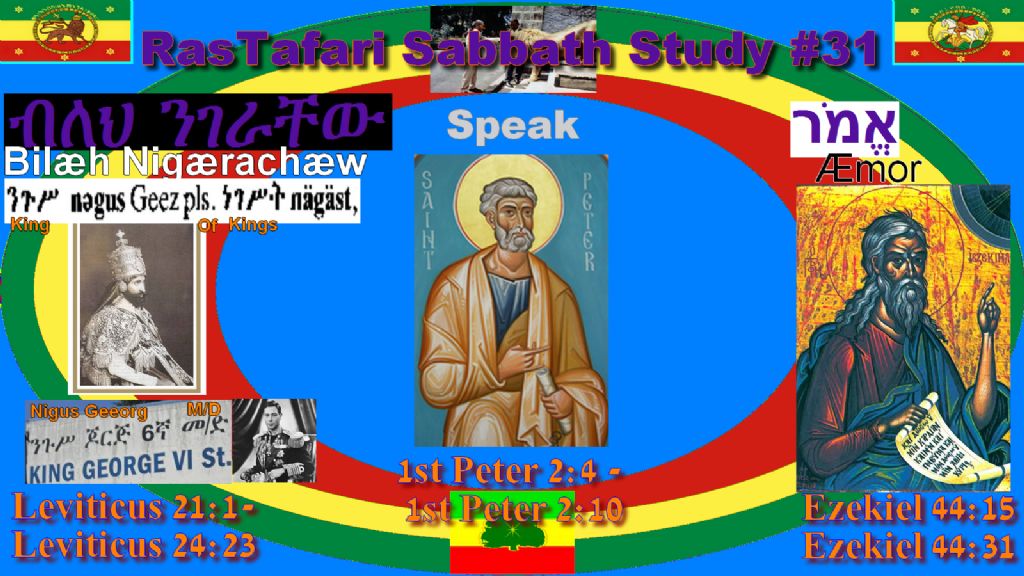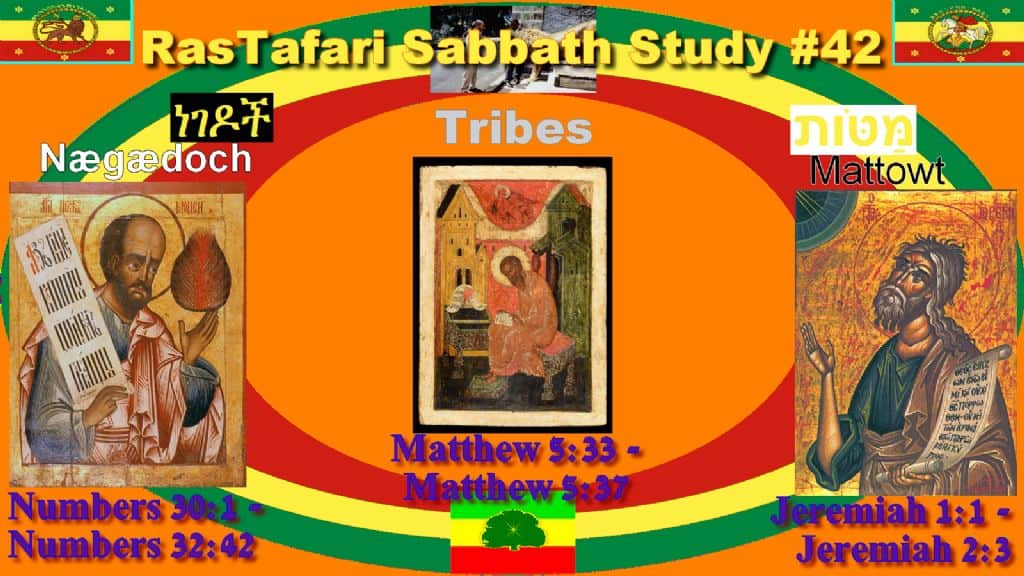This Week's Portion #32
Behar | בהר | "On the mountain" (በሲና) ተራራ | (beSina) Terrara
*For a PDF version of All the Torah Portions Schedule, click here to download!
1. Torah Reading
2. Prophets Reading
Jeremiah 32:6-27
3. New Testament Reading
Luke 4:14-21
Portion Outline - TORAH
- Leviticus 25:1 | The Sabbatical Year
- Leviticus 25:8 | The Year of Jubilee
- Leviticus 26:1 | Rewards for Obedience
Portion Outline - PROPHETS
- Jeremiah 32:1 | Jeremiah Buys a Field During the Siege
- Jeremiah 32:16 | Jeremiah Prays for Understanding
- Jeremiah 32:26 | God's Assurance of the People's Return
Portion Study Book Download & Summary
VAYIKRA Hebrew Book of Leviticus - Torah Portion Vol.3 (FREE PDF)
Behar The thirty-second reading from the Torah and second-to-last reading from the book of Leviticus is called Behar (בהר), which means “On the Mountain.” The name comes from the first words of the first verse of the reading, which could be literally translated to read, “The LORD then spoke to Moses on Mount Sinai” (Leviticus 25:1). This portion from the Torah introduces the laws of the sabbatical years, the jubilee and laws concerning redemption. In most years, synagogues read Behar together with the following portion, Bechukotai.
Portion Commentary - Behar
The Jubilee Year
Thought for the Week:
The sabbatical year and Jubilee law reminds us that, ultimately, everything belongs to God. We do not really own anything. Instead, "The earth is the LORD'S, and all it contains" (Psalm 24:1). In Western society it is easy to get caught in the trap of materialism. We unconsciously measure our quality of life based on the value of our possessions. A person cannot truly own things. We are just short-term borrowers.
Commentary:
You are also to count off seven sabbaths of years for yourself, seven times seven years, so that you have the time of the seven sabbaths of years, namely, forty-nine years. (Leviticus 25:8)
The sabbatical year occurred once every seven years. God commanded the children of Israel to count off seven full sabbatical cycles. Seven cycles of seven years multiplies out to forty-nine years. The fiftieth year was called the yoveil year. Yoveil is transliterated into English Bibles as "jubilee."
The jubilee year is supposed to be declared ten days after it begins by a sounding of trumpets on the Day of Atonement. During the jubilee year, agriculture is to be left fallow, just like a sabbatical year. When the jubilee comes, debts are forgiven, loans are cancelled, slaves are released and property holdings return to their original tribal/family owners. Jubilee years have not been practiced in Israel since the tribes went into exile, but imagine what it must have been like when the jubilee was kept. Suppose all your debts were cancelled and you were given an expensive tract of land that had belonged to your great-grandfather generations ago. Suppose you were a slave because you owed a large sum of money. When the trumpet of the jubilee year sounded, your debts were forgiven and you were set free. How could you keep from dancing?
This is what it is like to be saved. The Bible tells us that before knowing Yeshua, we are all debtors. Our sins collect like a great financial burden that we have no hope of ever repaying. Worse, we are slaves to the adversary. Without Messiah, we are spiritually hopeless, in bondage and without inheritance.
Yeshua is our jubilee year. He told the people in the synagogue in Nazareth that He had come to "proclaim release to the captives ... to set free those who are oppressed, to proclaim the favorable year of the LORD" (Luke 4:18-19). The favorable year of the LORD is the jubilee year. Yeshua is a spiritual jubilee. His death pays the debt of sin that we cannot repay. In Yeshua, sins are forgiven and wiped away forever. He sets us free from bondage to the adversary, and, to our utter astonishment, He gives us the rich ancestral inheritance of a place in Israel. We are transformed from misery to spiritual riches. That's what salvation in Yeshua is all about.
Perhaps this explains why the jubilee year is proclaimed on the Day of Atonement. More than any other festival on the biblical calendar, the Day of Atonement teaches about Messiah's atoning sacrifice and the forgiveness of sins. What an auspicious day to declare the remission of debt and freedom from bondage!
Middot U,Mitzvot (Character and Deeds)
Integrity in Business
So you shall not wrong one another, but you shall fear your God; for I am the LORD your God. (Leviticus 25:17)
A person selling a piece of property might be tempted to abuse the laws of the jubilee to his advantage. He might sell a piece of property to an unsuspecting buyer at the full value of the land, knowing that in just a few years a jubilee would occur, allowing him to take it back. The new owner would be left with nothing. The Torah forbids that kind of transaction. Instead, the sale price of the land is supposed to always have the coming jubilee in view.
Otherwise honest and God-fearing people often feel justified to cheat or take advantage of others in business transactions. They behave as if there is a different set of ethics that rule the world of commerce. For example, a person who would never think of stealing someone's ballpoint pen does not bother to point out to a vendor that they forgot to bill him for their last shipment. A couple selling a house does not feel it necessary to point out to prospective buyers that the furnace is failing. A broker feels no need to let his client know that his fees are twice the industry standard. It's just business, right?
Business affairs must be held to the same standard of Torah as the rest of life. While discussing business transactions, the Torah warns us, "You shall not wrong another!" (Leviticus 25:17). Scrupulous honesty might not seem like a good way to get ahead in the business world, but it will get you ahead in the kingdom of heaven.

